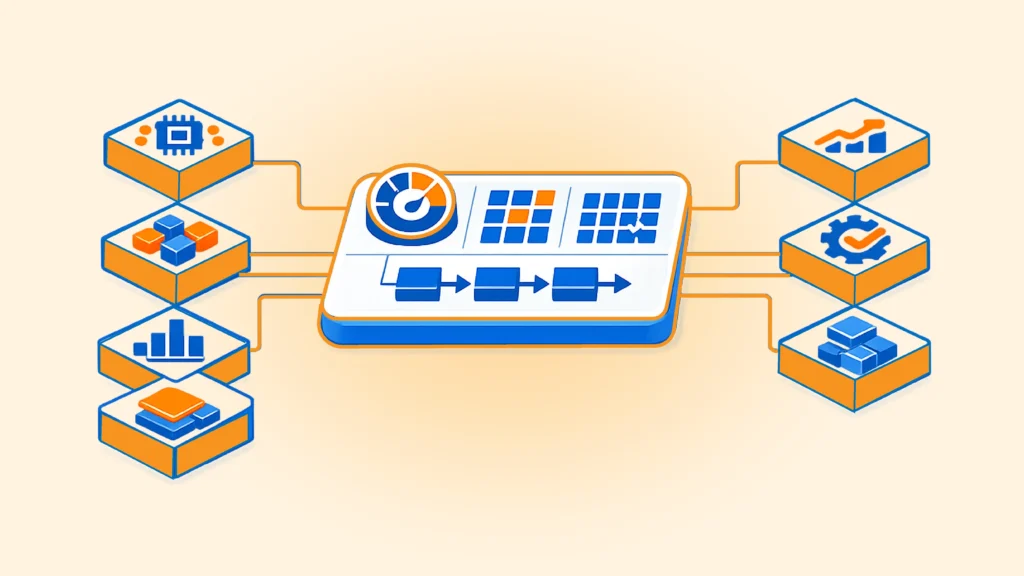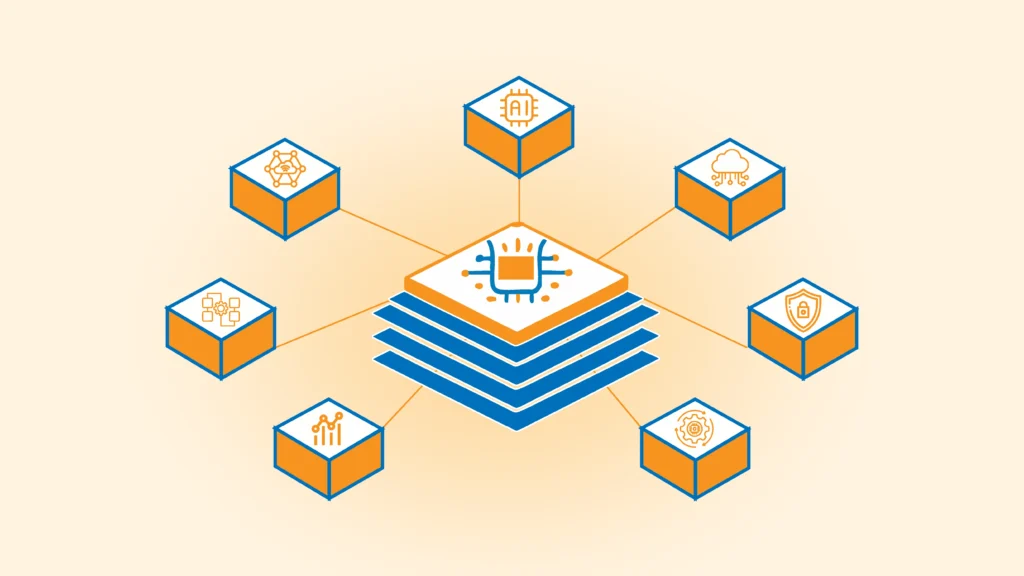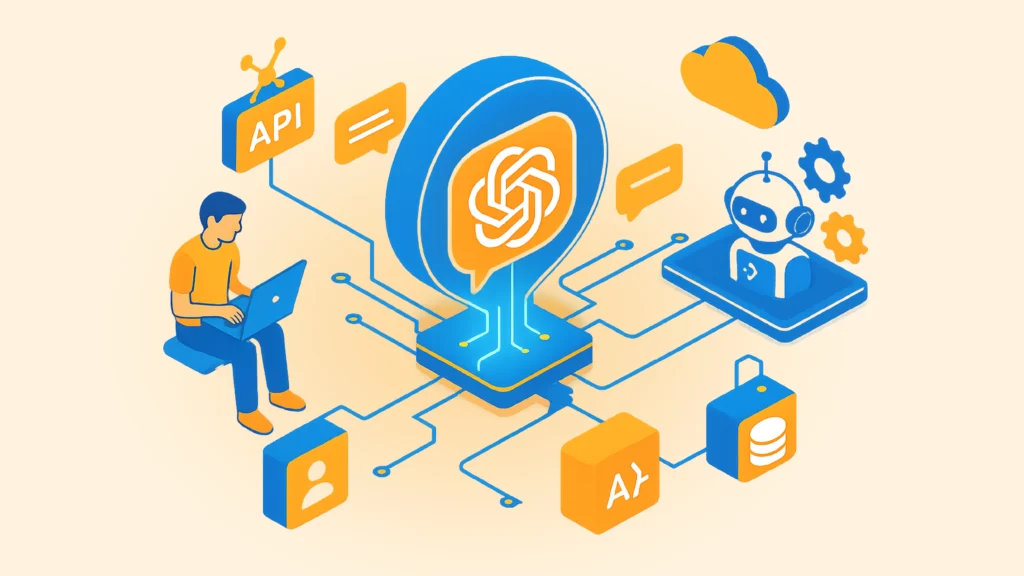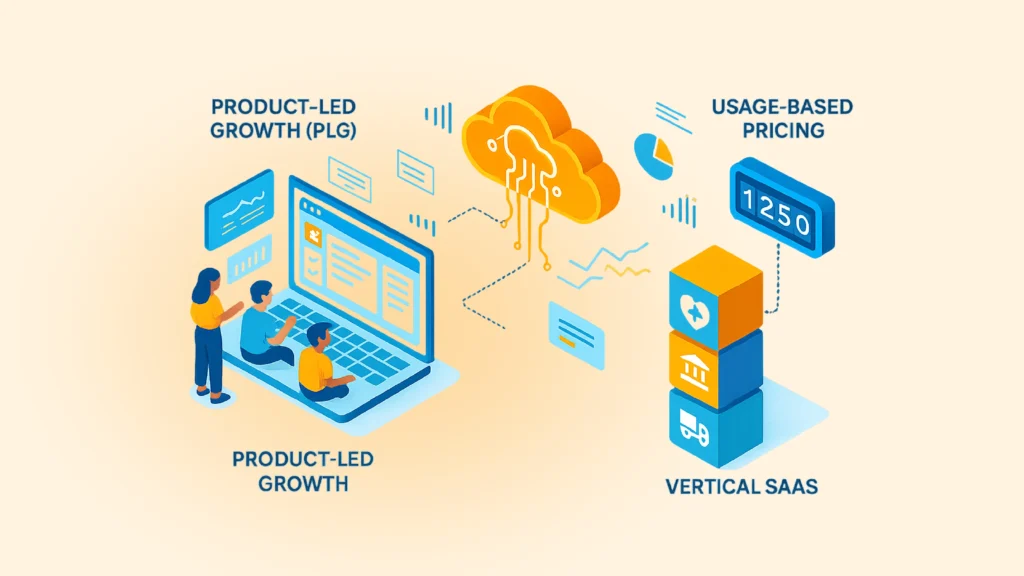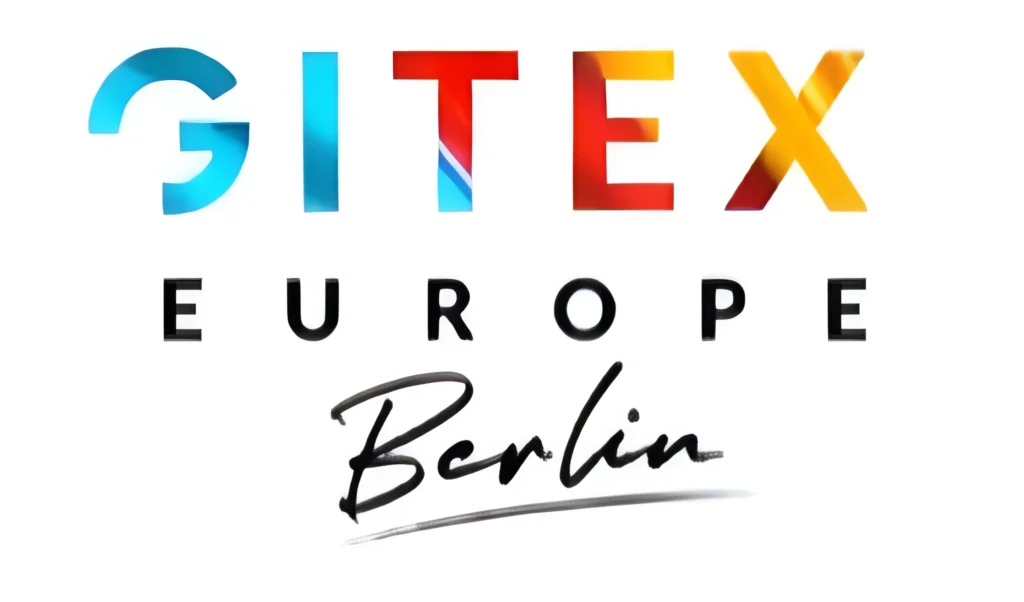React Native vs. Flutter: In 2025, which framework to choose and why?
React Native vs. Flutter: In 2025, which framework to choose and why?
- November 25, 2025
- 10 Mins Read
Quick Summary
Flutter vs. React Native Performance Metric (2025)
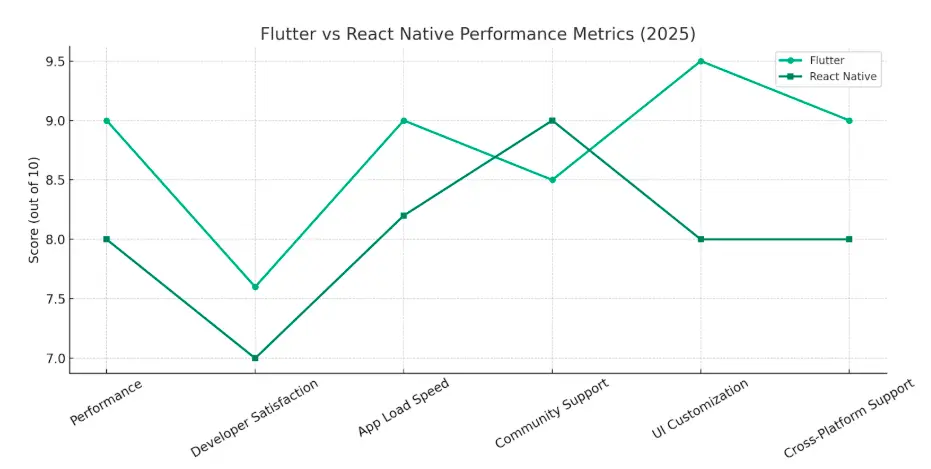
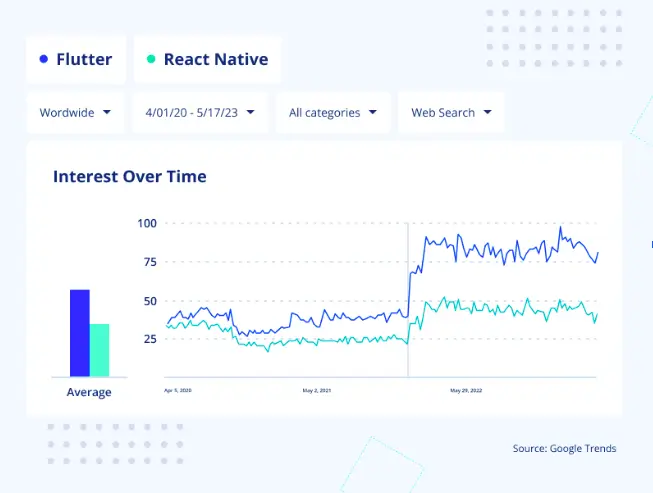
Introducing Flutter
Why Flutter Is Loved by Developers
Let’s drill down a little more to understand why the Flutter programming language is loved by developers globally.
- Single Codebase for All Platforms
- Beautiful, Customizable UIs
- Blazing-Fast Performance
- Aesthetic Freedom
- Growing Ecosystem & Community
- Robust Tooling & Dev Experience
- Backed by Google
Check out iQud’s real-time success story of developing an AI-powered storytelling platform using Flutter.
Popular Flutter Applications You Might Know
- Google Pay—Fintech/Payments
- BMW (My BMW App)—Automotive/IoT
- Nubank—Banking/Fintech
- Alibaba (Xianyu App)—E-commerce
- Reflectly—Wellness/Lifestyle
- Google Classroom (internal tools & components) – EdTech
Wondering whether React Native or Flutter is the right fit for your app? Here is how our team of skilled React Native app development experts will help you understand what the best fit is for you and your project. Let’s connect today and convert your mobile app ideation to life with the perfect framework!
Introduction to React Native
Now, let’s shift the gears towards React Native. In the cross-platform development world, React Native is another big and major player.
It was in the year 2015 when Facebook (now Meta) introduced React Native, which was two years before Flutter. In no time, among the developers, it became their favorite. These two technologies are most widely used in web development.
React Native is a part of the JavaScript framework, whereas for app development, the branch used is ReactJS. Another best thing about React Native is that it allows writing one codebase for both iOS and Android.
Here’s where things get interesting. Flutter illustrates everything on its own, and React Native relies on its native components. The outcome of it is simple, as it bridges the JavaScript code with native platform elements. The era of making the app feels like it never stopped.
While developing an app for multiple platforms and systems, one thing that was lost was the essence and the feel of that specific app, built specifically for each system. However, things changed with React Native. It not only helps create cross-platform apps but also keeps the native essence.
Why Do Developers Choose React Native?
- Code Once, Deploy Everywhere
- Familiar Language: JavaScript
- Vibrant Ecosystem & Community
- Rich Third-Party Libraries
- Live & Hot Reloading
- Native Performance with Flexibility
- Backed by Industry Giants
- Fast MVP Development
- Large Talent Pool
Popular Apps Built with React Native:
- Instagram—Social Media
- Facebook—Social Networking
- Walmart—E-commerce & Retail
- Discord—Communication/Gaming
- Pinterest—Discovery & Inspiration
- Bloomberg—Finance & News
- Tesla- Automotive / IoT
- Shopify—E-commerce
- Microsoft Outlook—Productivity/Communication
Two Titans, One Goal: Shared Traits of Flutter & React Native
Before diving into the pool to understand which framework is better, let’s take a moment to acknowledge what React Native and Flutter have in common. For good reason, both have become the prime choices for cross-platform development. Let’s discuss and list their similarities.
- Cross-Platform Development: One Codebase for All:
In Flutter and React Native, developers get full access to write one codebase for iOS and Android. It therefore helps reduce development time and cost for the project. It thus boosts the overall process, as it supports web and desktop apps. - Free and Open Source:
As an open-source framework, the language offers cost-free access, team-based community growth, and a range of tools and add-ons to make the development process easier and boost productivity. - Hot Reload for Instant Updates:
One of the top reasons for the rise here is the access that developers get with regard to code changes without restarting the app. This entire process helps speed up development and debugging tasks, all in one go. - Near-Native Performance:
Both these frameworks provide close performance to native apps by managing native components through animations, UI, and interactions, ideally suitable for most use cases. - Strong Community and Ecosystem:
The developer community makes sure that plugins, libraries, and other required assets are readily accessible, which assists in resolving frequent problems that are extensively covered on Stack Overflow and GitHub. - Backed by Tech Giants:
Talking about the tech giants, Flutter is supported by Google, and React Native by Facebook (now Meta).
Comparison Between React Native and Flutter
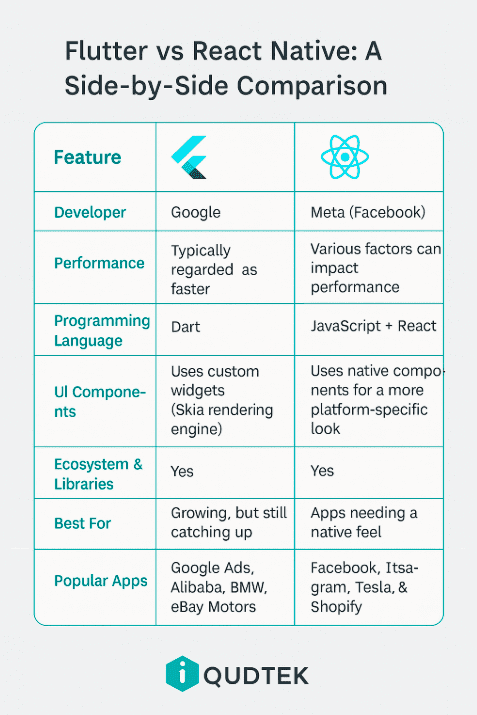
Which One to Choose: Flutter or React Native?
The process of selecting the right framework between Flutter and React Native is to understand which is better for the project, as they both have their strengths and weaknesses.
The process of choosing between Flutter and React Native isn’t about finding the “top-notch” framework. What needs to be understood is knowing which language is right for your project. Both have their strengths and outcomes.
When it comes to performance, UI consistency, and support across multiple platforms, Flutter stands out as the top choice. It shines in creating feature-rich apps that run. Also, if you want to have long-term scalability across mobile, web, and desktop, trust us, Flutter is the best and most trusted choice.
For JavaScript developers, third-party integrations, and lightweight apps, the best-used language is React Native app development services. The primary reasons favoring React Native are the availability of extensive native API support, an accelerated development lifecycle, an abundance of framework data, and a skilled community of developers.
Both Flutter and React Native offer immense value as development frameworks for cross-platform applications and will offer significant value in the year 2025 and beyond.
Still struggling to select which framework is best for your project? No worries, let iQud help you convert your business vision into a scalable, efficient, and real-time solution.

